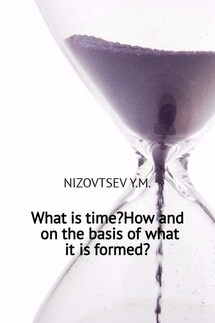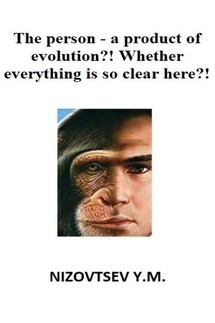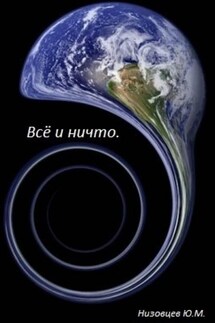Everything and nothingness - страница 11
Hegel also joins the aforementioned thinkers in relation to the absolute truth. If we recall the definition of the absolute, which has gave Hegel, namely: “The absolute is the unity of subjective and objective … whereas in fact subjective and objective after all not only are identical but also different” [13, p. 116], then the absolute neither in the current life, nor in thinking can't be.
In terms of the interaction of consciousness and things, identified by consciousness, process of deepening of consciousness in the thing depends on the level of consciousness, which can understand the essence of thing only in accordance with it, moving ahead, for example, from the general concepts "heat" and "cold" to laws of molecular motion in different environments.
Therefore it is inadequate to consider that each step in the knowledge is the absolute truth, moreover it is possible to go deep into the thing infinitely not only because nobody knows its depth but also because consciousness itself changes "jumping" from one level of development on another where things appear before him in other appearance and obey to other regularities.
Perhaps that is why the oldest religion on Earth – Hinduism – stated: truth cannot be expressed because of its diversity.
And contemplative in its essence Buddhism, by contrast, thought that truth is revealed in front of each of your gaze.
It was shown above how difficult to object to both.
Be that as it may, but practical advance of mankind both in technical, and in moral the relations show that coincidence of aspirations of people with cognizable by them to the main natural and public regularities in refraction them to the solution of practical tasks lead actions of people to real achievements. Means, truth nevertheless exists!?
But really truth has only relative, banal or pragmatic character? Perhaps, there is aught beyond the current reality which nevertheless can be understood intuitively and added to the few fundamental truths.
It seems that to approach to decision of this problem is only possible due to clarify the correlation of such categories as beingness, consciousness, information.
1.2. The active and the passive in the unity and a division
Beingness in the usual formulation is existence of things. However in our opinion, this understanding is not enough, because to explain this existence as a separate is impossible.
Therefore God arises inevitably for some – divine source and the prime propulsor of these things (the real).
The opposite camp as opposed to this view puts forward a hypothesis of self-development of matter.
Both aren't represented by satisfactory interpretations of existence of the real.
As for God, this omnipotent, live, external and infinite being is so contradictory and fantastic, that it is only possible to believe in him from hopelessness, that and happening. More in details on these and other properties of God we will stop below.
If to present matter in the form of some formation which itself moves and always was in motion, and in this motion it forms else, including consciousness, then, firstly, if to prove that motion is visibility, or rather, motion is secondarily, appearing only owing to technical transformation of process of updating of copies of things in consciousness of living beings in motion, then self-development of a matter does not exist. Secondly, it has long been proven, that the genome of any living being is so complex that a self-assembly, self-development is impossible for it. However, the living beings exist and there are even the living beings, conscious of themselves, i.e. the people themselves. Thirdly, inasmuch it is recognized that self-development is the ongoing progressive process, then it must have initial and final conditions.









